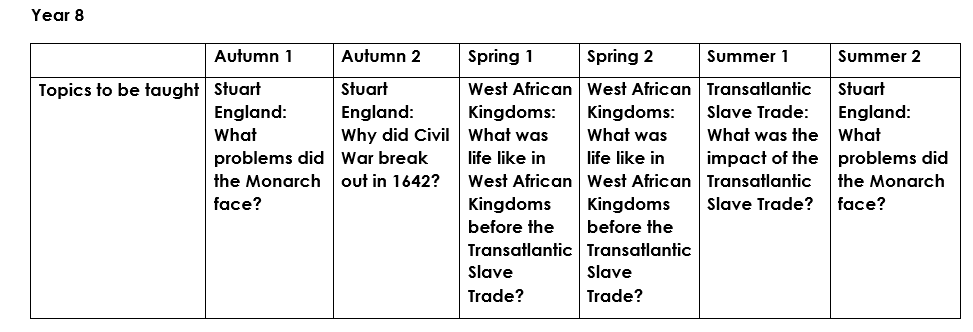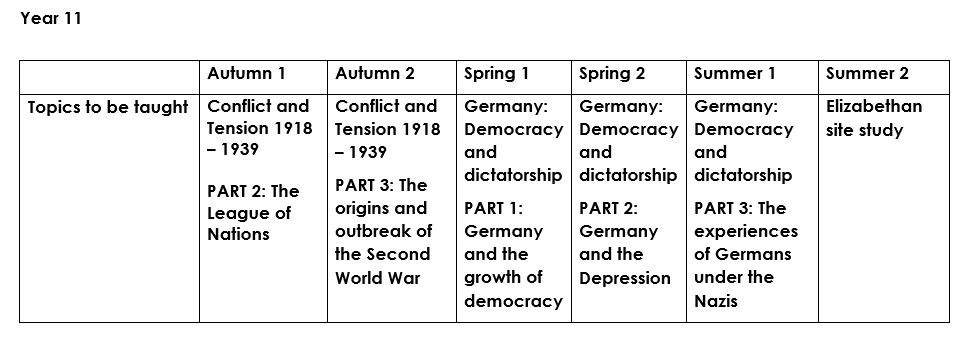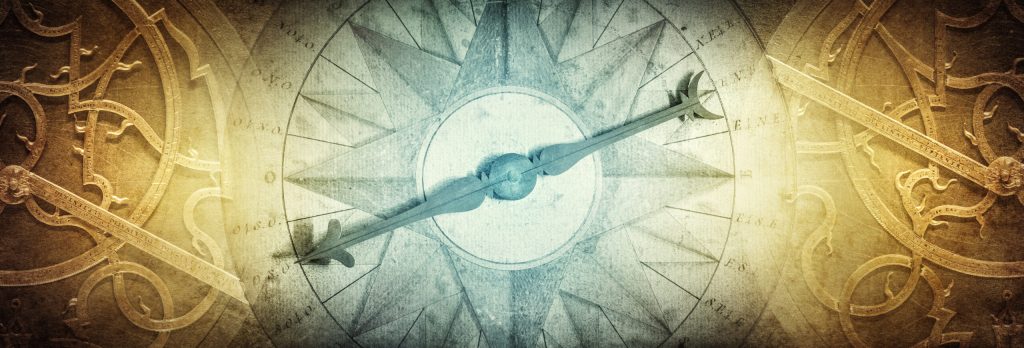History Curriculum Intent
In the History department, our curriculum is ambitious. Our curriculum is designed to give all of our pupils the knowledge, skills and cultural capital they need to succeed in life. It aims to allow our pupils to make sense of the local area around them and the wider world they experience today, as their local history is threaded throughout our curriculum.
Our pupils learn about and develop a secure understanding of local, British and world history until the present day.
The sequencing of our curriculum allows pupils to make connections and comparisons between different places, people, ideas and events through time. At each stage of their journey in Years 7, 8 and 9 pupils’ learning is connected by four themes: monarchy, society, conflict and world history.
It ensures pupils continuously build and work towards sufficient knowledge and skills for their futures.
Year 7
Pupils continue their journey at Grace Academy by deepening and extending their knowledge and understanding from Key Stage Two. Pupils study history chronologically, beginning with the early development of Britain during the Roman Empire and after its fall, Norman England then through to the medieval world and the significant changes of the Reformation. It is at this stage in Year 7, pupils are introduced to our enquiry-based curriculum in which they study and investigate valid historical enquiries and questions. Historical sources and interpretations are used to build pupils’ knowledge of the past, make historical claims and understand why there are different interpretations of the past.

Year 8
Pupils’ learning in Year 7 is complemented by their learning in Year 8 where they start by extending their knowledge of the development of Britain. This begins with the reign of the Stuarts and the long-term impact of the Reformation in England. Pupils’ learning journey broadens into significant themes in world history, such as 16th century West African Kingdoms, the Transatlantic Slave Trade and the British Empire in India. Our study of the Industrial Revolution deepens pupils’ understanding of their local context and the significance of Walsall to Britain’s industrial strength domestically and globally.

Year 9
Year 9 deepens and extends pupils’ skills in evaluating historical sources and interpretations and using them to construct and support their own historical interpretations. Pupils move to thematic enquiries in world history focused on significant issues and debates. Exploring the causes and ideas that fuelled terrorism in the 20th century to start Year 9 enables pupils to build their cultural capital and knowledge of modern political events that continue to shape important debates. The seismic changes of World War Two are studied, beginning with inter-war Europe and the rise of dictators, the Holocaust and the Post-War World in Britain and the Civil Rights Movement at home and in the USA.

GCSE
Pupils’ journey in History so far aimed to prepare them with crucial skills of investigating and analysing evidence, evaluating interpretations and forming supported judgements on significant enquiry questions. This builds the foundation of skills for their future and also their continued studies into GCSE and beyond. Our thematic curriculum centred around monarchy, conflict, society and local themes encourages pupils to thread their knowledge throughout their journey, making connections in depth and period studies in British and world history. This sequencing ensures they are prepared in the skills and knowledge for the depth and thematic studies they encounter at GCSE.

Useful websites for revision and additional support:
https://www.aqa.org.uk/subjects/history/gcse/history-8145/specification-at-a-glance

Useful websites for revision and additional support:
https://www.aqa.org.uk/subjects/history/gcse/history-8145/specification-at-a-glance
Exam board – AQA
Number of papers – Students’ sit two, two-hour exam. Four papers in total
Method of examination – Written exams
Content:
- Health and the People
- Elizabethan England
- Conflict and Tension 1918 – 1939
- Germany 1890-1945 Democracy and Dictatorship

